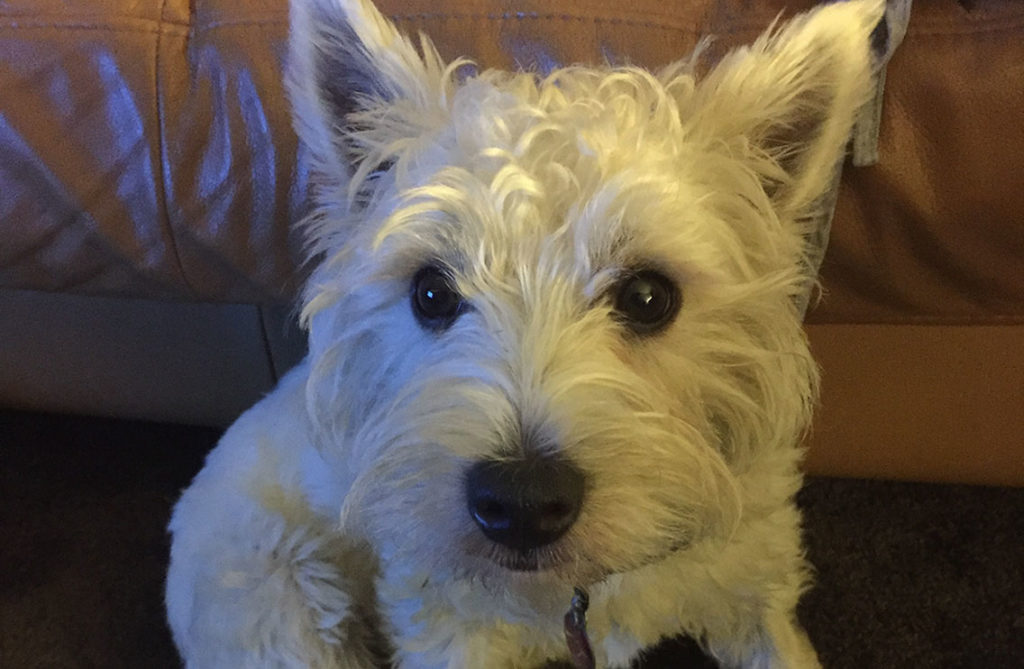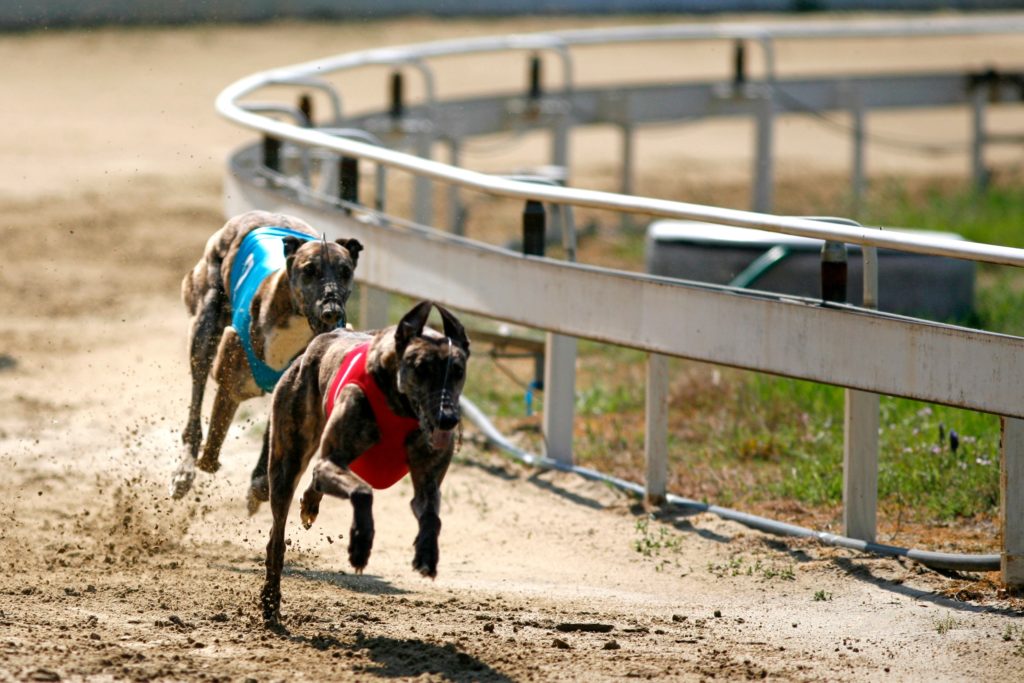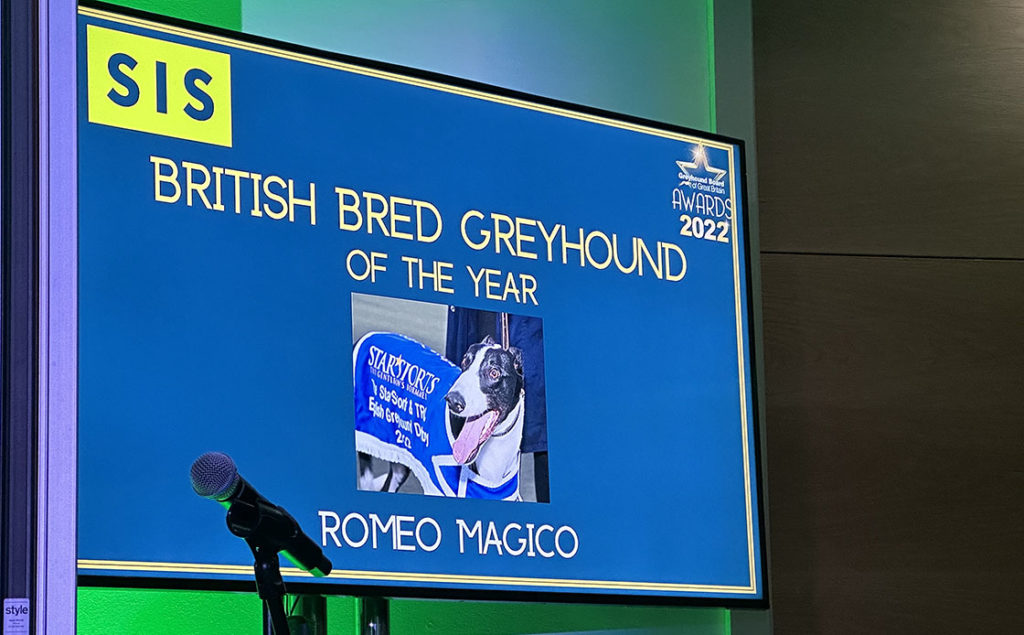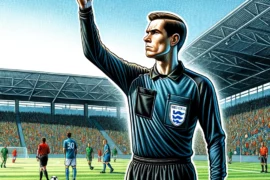There are calls for greyhound racing to be banned, which got me thinking: why is there such a disconnect between a dog-loving nation and the sport?
I love dogs. While many dog lovers will say they treat their canine pets as extensions of their families, I treat mine as integral parts, so much so that I won’t put dogs in kennels and even reluctant to ask friends or family to look after them while I’m away.
When I moved to Cape Town for work, I arranged for my dogs to be shipped over and then back to the UK when I left. Both times, you should have seen the unbridled joy at the reunion when I fetched the dogs from the airport; tails wagging uncontrollably, sloppy tongues wreaking havoc. And that was me, not the dogs. Together again, man and dog reunited. Me and my fur babies!


I’m also a lover of various forms of sport, including sport involving animals. But my enjoyment of the latter is with the important caveat that the animals involved are not abused in any way. This is why I’m conflicted about increasing calls for an outright ban on greyhound racing.
At a recent event, I started to question why such a big disconnect between a dog loving nation and a sport that involves dogs?
Greyhound racing notoriety
But why does greyhound racing in the UK have such a bad reputation?
Activists say the whole ecosystem is rotten, the industry morally bereft and beyond rehabilitation. There is no denying that there are some serious moral-ethical issues on and off the track.

Naturally, exponents of the sport accuse animal rights activists of sensationalising the issue and overstating the problems. The truth of the matter, however, is that the plight of greyhounds is neither exaggerated nor is the outrage manufactured. The statistics are quite damning and the facts speak for themselves.
Stories of poor treatment of dogs by breeders are rife, coupled with unethical breeding practices. Also of serious concern is the fate of greyhounds once they have outlived their purpose as racing dogs.
For years activists have been imploring practitioners to institute best practice protocols and regulations governing all aspects of the industry, from breeding to life after racing and everything in between.
Greyhound racing is also embedded with the betting industry, perhaps explaining some of the antipathy towards a sport viewed as an axis of vice and reviled by some as a contributor to gambling problems within society.
What are the key issues?
The debate on whether to ban greyhound racing must be located in the context of regulations governing all sports and pastimes involving different animals; polo, horse racing, greyhound racing, pigeon racing, camel racing etc.
Reviews conducted by leading animal welfare organisations in the UK revealed a whole host of issues in the greyhound racing ecosystem; poor racing conditions often in extreme weather, substandard kennelling, atrocious diet for dogs while the transportation arrangements left a lot to be desired.
On the whole the welfare standards were found to be woefully inadequate and well short of best practice.
A raft of other welfare issues remain of serious concern, from unethical overbreeding of dogs, to questionable training methods and the use of performance-enhancing drugs. Alarmingly high numbers of avoidable injuries and deaths on and off the track are also recorded every year.
Live-baiting remains an ugly bloat on the industry’s moral-ethical canvas. Then there is the question of what happens to unwanted dogs forced into retirement by career-ending injuries or due to old age.
Racing animals and consent
From the beginning of time, animals were in the service of mankind. Man had and still has dominion over animals and uses them as he sees fit for his benefit. Today, hundreds of K9 dogs are put in harm’s way in the service of society, sent to their deaths in the line of duty while augmenting humans’ crime fighting efforts.
Do animals want to race?
There is a significant element of coercion whenever humans rope animals into their schemes.

In horse racing this coercive practice finds expression in the use of the whip in a bid to coax more speed out of the thoroughbreds.
What practitioners call “encouragement” animal welfare organisations call it cruelty to animals. Small wonder activists want not to have the use of the whip curtailed, but the whip banned altogether as a precursor to a complete ban on horse racing itself.
Because animals do not have the capacity to give or withhold consent, someone must advocate for them.
That role is being assumed by animal rights activists, and if they had their way, no animal would be used in any form of sport or entertainment for the amusement of humans.
Animals in sport are therefore at the mercy of their human handlers, on whom they rely for their welfare. Participating industries have a duty of care towards the animals in their service.
Sport fatalities and injuries
Every sport, involving animals or humans, has its inherent hazards. Sportsmen and sportswomen suffer all manner of injuries, many of them accepted as “part and parcel” and par for the course. However, these risks can be minimised or mitigated through observance of proper and stringent regulations.
There is consensus that greyhound racing carries a significantly high risk. The dogs are therefore more prone to injury. This risk is even higher when dogs, as routinely happens, are forced to race in poor conditions, often in extreme weather.
Data from the Greyhound Board of Great Britain (GBGB) reveals that there were 2000 deaths and around 18 000 injuries between 2018 and 2021. Those are extremely high fatalities and injuries. Still, some activists allege under reporting and believe the numbers are much higher considering racing also happens on tracks outside the GBGB’s oversight.
To put into context, 178 horse racing deaths were recorded in 2022 compared to a reported average of around 1000 deaths per year in greyhound racing. Of course one death is one too many, but still thoroughbred fatalities and injuries, pale in comparison to greyhound racing. An argument could be made that horse racing, even with all its problems, is better regulated than greyhound racing.
There is urgent need for measures to improve greyhound track safety to reduce fatalities and injuries.
There must also be proper and ethical protocols for the treatment and rehabilitation of injured dogs – I’m led to believe that facilities have been put in place, but is it too late?
Life aftercare racing
Racing greyhounds can’t be treated like egg layers, disposed of once they have served their primary purpose. Because egg layers are generally the same age, once they reach the end of their cycle they must be moved on to create room for the next batch.
Even then there are regulations for the ‘repurposing’ of hens after the end of their egg-laying lifespans. Although some farmers euthanize, gas and dump spent hens, some process them for meat.
The issue of what happens to retired greyhounds is a sore point for animal rights activists. A common practice is to send the dogs to kennels where they await adoption and rehoming as domestic pets.
The problem is that supply outpaces demand. Due to unethical overbreeding there are more retired dogs than people willing to adopt them. And because nearly 35% of racing greyhounds suffer injuries every year this may also hinder their adoption prospects.
The industry must put structures in place to aid with the rehoming and re-socialisation of retired dogs.
It is also important to vet adopters and ascertain their suitability.
The case for abolition
While some welfare organisations are calling for more stringent controls and working with the industry to improve conditions, others want a complete ban of greyhound racing effected in phases. The latter believe there is a huge gap between the industry’s rhetoric of reform and what is happening in practice.
They also argue that there is no realistic prospect of that gap ever being closed because of a lack of both moral and financial wherewithal. Activists also point to the industry’s failure to enforce its own regulations and a lack of transparency where refractions occur.
The abolitionists are convinced the inherent risks and the attendant moral-ethical issues far outweigh the arguments for greyhound racing as a sport or cultural entertainment.
It’s important to note that animal welfare groups haven’t always called for outright ban of greyhound racing. Urging a ban is a last resort born out of frustration with the slow pace of reforms in the industry and the realisation that not much will change despite the best collaborative efforts.
The fatalities and injuries are also far too many to ignore. Hundreds of avoidable deaths on and off the track are recorded every year.
What next for greyhound racing?
Greyhound racing has acquired a reputation as a morally bereft industry incapable of reforming itself. It will be interesting to see whether the industry will be able to ride out the storm and stave off the threat of a complete ban.
Animal rights activists have the bit between their teeth. The Advertising Standards Authority’s ruling in December last year rejecting the claim that the ‘Caged Nationwide’ campaign highlighting greyhound deaths misled the public was a serious body blow to the industry. Emboldened by the regulator’s rejection of the GBGB’s complaint that the campaign caused distress to race-goers and its employees, we can expect the abolitionists to ramp up their efforts.
Expect more billboards decrying the plight of greyhounds to go up across the UK as animal welfare organisations go for the jugular. They want a complete ban.
My observation
I’m a great believer in providing a solution than just calling out issues as the latter really doesn’t help anyone, let alone the poor dogs.
I know my dogs love to stretch their legs and run, swim and play and you can see the same in greyhounds as they sprint around a track. It’s a part of their DNA.
If you think of dogs that have jobs you know what breed is associated – Guide Dogs, Guard Dogs, Farm Help, Military, Sledding, Search and Rescue and Police. So, I would like to think that the GBGB are taking lessons from these industries as well as horse racing before the sport is banned.
If greyhounds are banned, what next? Ownership of dogs and the important tasks that dogs play in our daily lives?
Do we then start down the path of banning Crufts where dogs compete for the best of breed and other titles? I think not. Rather GBGB and animal welfare need to be more transparent with each other and put the greyhounds first!






